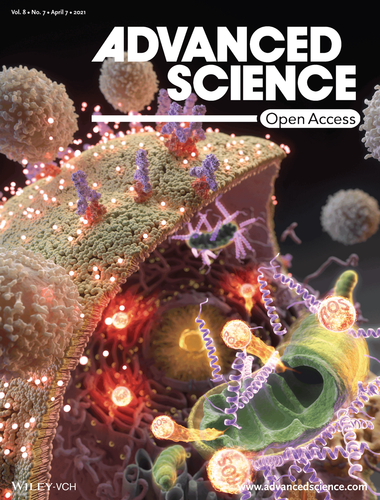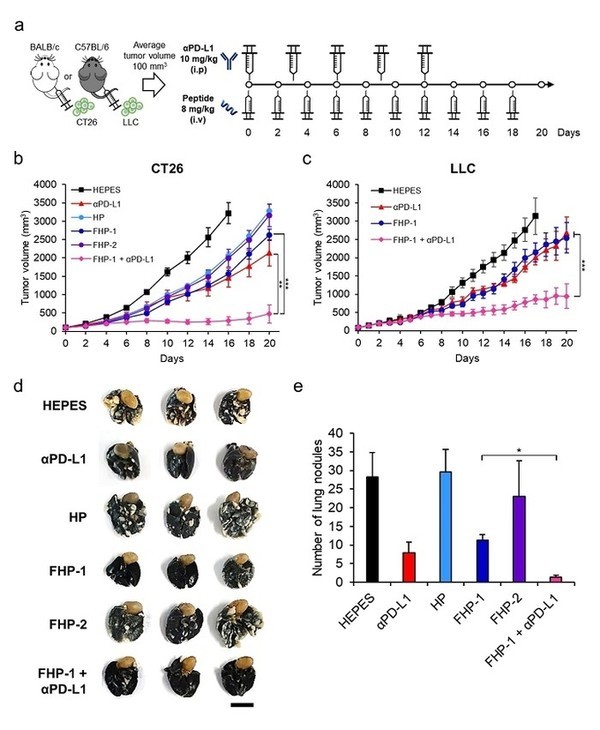Developed a new immunogenic cell-death inducer that enhances the effectiveness of cancer treatment by combining the usage of immuno-barrier inhibitors.
Professor Yoon Chae-ok of the Department of Bioengineering at Hanyang University and Yeu-Chun Kim of the Chemical and Biomolecular Engineering at KAIST have jointly developed a peptide-based immunogenic cell-death inducer that works with immuno-barrier inhibitors to treat cancer. The peptide developed by the research team breaks the mitochondrial outer membrane of the cancer cells and increases the active oxygen concentration, and oxidative stress stimulates the endoplasmic reticulum to induce the killing of immunogenic cells.

Immune-barrier inhibitors block immune barriers that inhibit the activity of immune cells in T cells (CTLA-4, PD-1) and cancer cells (PD-L1) and activate immune cells. A variety of immunosuppressants have been used in patients since its first approval by the US Food and Drug Administration in 2011.
However, there are limitations to immunosuppressants. First, it was found that this treatment is effective only for 10 to 40% of the patients. In addition, the disadvantage to this treatment is that T cells with conventional anti-cancer capabilities are needed.
Therefore, the research team reportedly tried to solve the problem by using immunogenic cell killing derivatives that induce anti-cancer immune responses and immunological barrier inhibitors. The research team found that peptide-based immunogenic cell killing derivatives overproduce active oxygen in cells through the decay of the mitochondrial outer membrane, and oxidative stress stimulates endoplasmic reticulum, ultimately inducing immunogenic cell death.

Furthermore, when the peptide and immune barrier inhibitor, anti-PD-L1, were administered in combination with animal experiments, tumor suppressor ability was improved compared with a single administration, and metastasis to the lungs was reduced by an activated immune reaction.
The results of the research were published in the international journal, "Advanced Science" on the 7th, under the title, "Immunogenic Cell Death Inducing Fluorinated Mitochondria-Disrupting Helical Polypeptide Synergizes with PD-L1 Immune Checkpoint Blockade." Doctor Jung Bo-kyung from Hanyang University's Department of Bioengineering, and Doctor Jung Sung-dong from KAIST Biochemical Engineering participated in the thesis as first authors and Professor Yoon participated as co-author. The research was carried out through the Korea Research Foundation's mid-level researcher project and the basic laboratory project.

